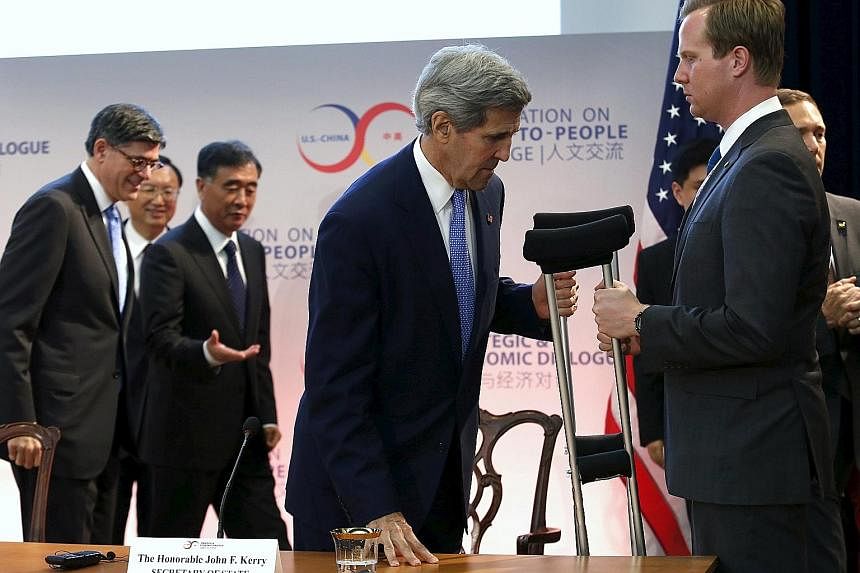THE United States and China have agreed to broaden their cooperation on climate change, even as disagreements continued to hang over the high-level meetings taking place in the US capital.
Environmental issues have proven to be one of the few areas where both sides have been able to find common ground and it proved to be the case again on the first day of the seventh US-China Strategic and Economic Dialogue on Tuesday.
The two countries announced partnerships on six environmental initiatives, including a project to measure air pollution near chemical industrial parks and another to track sea turtle migration.
Speaking at a panel on climate change, US Secretary of State John Kerry said the cooperation has gone beyond everyone's expectations and is having an important and positive impact on the world.
"Because China and the United States are the world's two largest (carbon) emitters today, when we make a decision to move on this, it has a profound impact," he said.
Similarly, Mr Xie Zhenhua, special representative for climate change at China's National Development and Reform Commission, said the two countries were setting an example for others on how to work together.
He said China would outline ambitious climate change objectives at the end of this month. Mr Xie also revealed that it would cost China US$6.6 trillion (S$8.9 trillion) to meet its carbon reduction goals by 2030, as it needs to invest in developing non-coal energy sources.
While the two sides had focused on areas of common interest at the first day's sessions, it was inevitable that recent tensions over cyber security and the South China Sea would cast a cloud over the dialogue.
The most direct confrontation between the two sides emerged at the economic meeting.
During his speech at the opening of the economic track of the dialogue, US Treasury Secretary Jack Lew raised concerns about state-sponsored hackers. "We remain deeply concerned about Chinese government-sponsored cyber-enabled theft of confidential business information and proprietary technology from US companies. Such activity falls outside of the bounds of acceptable state behaviour in cyberspace," he said.
Chinese Finance Minister Lou Jiwei responded by saying simply that the economic session was not the right venue to discuss the matter. Tensions on this issue had spiked heading into the summit. Early this month, the US blamed Chinese-backed hackers for an attack that compromised personal information of some four million current and former US federal workers.
The two also traded barbs on economic reform in both nations.
Mr Lew's comments about the importance of the Chinese reshaping their economy to rely more on domestic consumption and less on investment and exports seemed to prompt Mr Lou to counter at a later press conference with suggestions that the US was not pulling its weight when it came to global growth.
He said while China accounted for 30 per cent of global growth, the US' share was only 10 per cent. He said the US needed to invest more in its own economy.
"The United States should have a proper mechanism to mobilise more savings to direct to investment. At the same time, we would suggest that the US could use the opportunities of greater fiscal space to increase investment in infrastructure," he said.
While US officials acknowledged that many difficult issues were brought up, they dismissed the notion that these issues could derail talks. Said a senior State Department official: "I think it's not correct to say that the temperature in the room is going up or anything like that. We have a pretty mature relationship. We talk about difficult issues, and it's something that both sides are quite used to at this point."

